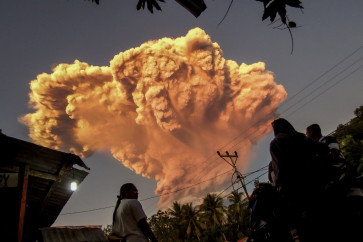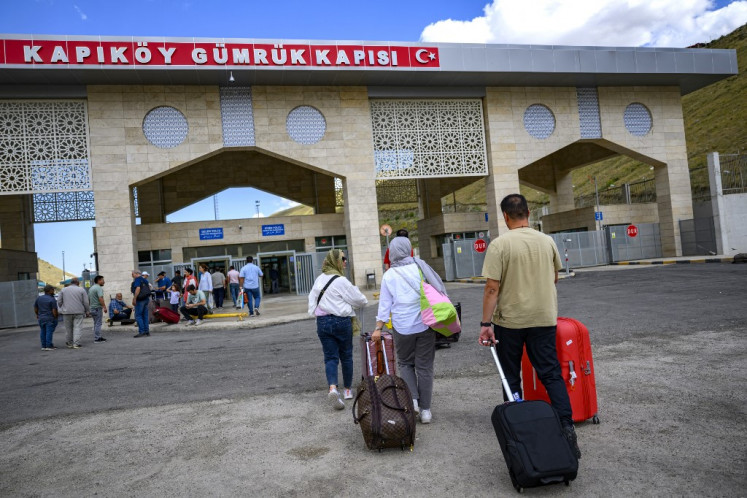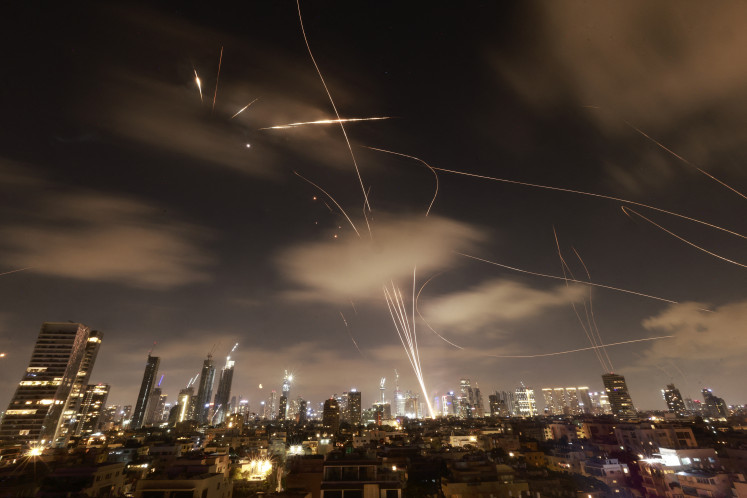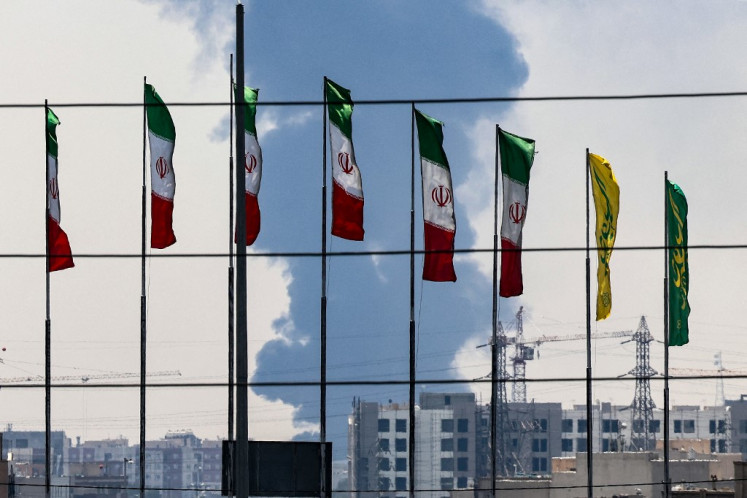Popular Reads
Top Results
Can't find what you're looking for?
View all search resultsPopular Reads
Top Results
Can't find what you're looking for?
View all search resultsLaw on Yogyakarta's special status thought to have triggered serious rights violations throughout 2015
Tension: The land-awarding practice of kekancingan from the Yogyakarta Palace (pictured) to investors has been accused of causing human rights violations as it reportedly led to the extensive degradation of the residences of local people
Change text size
Gift Premium Articles
to Anyone
 Tension: The land-awarding practice of kekancingan from the Yogyakarta Palace (pictured) to investors has been accused of causing human rights violations as it reportedly led to the extensive degradation of the residences of local people. (Antara/Noveradika) (pictured) to investors has been accused of causing human rights violations as it reportedly led to the extensive degradation of the residences of local people. (Antara/Noveradika)
Tension: The land-awarding practice of kekancingan from the Yogyakarta Palace (pictured) to investors has been accused of causing human rights violations as it reportedly led to the extensive degradation of the residences of local people. (Antara/Noveradika) (pictured) to investors has been accused of causing human rights violations as it reportedly led to the extensive degradation of the residences of local people. (Antara/Noveradika)
T
span class="caption">Tension: The land-awarding practice of kekancingan from the Yogyakarta Palace (pictured) to investors has been accused of causing human rights violations as it reportedly led to the extensive degradation of the residences of local people. (Antara/Noveradika)
The Yogyakarta Legal Aid Foundation (LBH Yogyakarta) has said that Law No.13/2012 on Yogyakarta's special status caused human rights violations in the province throughout 2015.
'The 2013 law on Yogyakarta's special status has been a major cause of rights violations to land ownership and employment and has criminalized residents who opposed the expropriation of their land to support the development policies of the provincial administration,' LBH Yogyakarta director Hamzal Wahyudin told journalists in Yogyakarta recently. The rights activist explained the situation at the launch of LBH Yogyakarta's end-of-year report.
The LBH Yogyakarta said in its report that the human rights violations occurred during the construction process of the new airport in Yogyakarta, in sand mining activities in Kulonprogo regency and during the land-awarding practice of kekancingan from the Yogyakarta Palace to investors, who in turn reportedly degraded and destroyed people's residences.
Hamzal said the widespread abuse of human rights in Yogyakarta began with the 2013 law on Yogyakarta's special status, which gave the Yogyakarta Palace and the Pakualaman the right to own grounds again, similar to the condition in place during the Dutch colonial era. The problem centered on a regional regulation (Perda) on land affairs, which aimed to regulate in more detail the status of the Yogyakarta Palace and the Pakualaman as owners of the grounds. The regulation has not yet been passed by the Yogyakarta Legislative Council.
'We will convey this report to Yogyakarta's regional heads at the provincial, regency and municipality levels so that there will be no more human rights violations in 2016,' said Hamzal.
Rizky Fatahilah, head of the advocacy division at the the LBH Yogyakarta, said there had been a close connection between the 2013 law on Yogyakarta's special status and the implementation of the Master Plan for the Acceleration and Expansion of Indonesia's Economic Development (MP3EI) project, which designated Yogyakarta as a tourist and industrial hub.
Citing an example, Rizky said the Yogyakarta administration had claimed that the land that it had used to develop a new airport belonged to Pakualaman, not to local people. Consequently, the administration unilaterally took over the land from the local people to develop the infrastructure needed to support the province's tourism industry.
As a result, he said, thousands of local people had been negatively affected and farming land around Kulonprogo would continue to decline due to the land conversion practices undertaken for the construction of the new airport.
'After Yogyakarta's special status law took effect, there was massive land conversion, including through the kekancingan land-awarding practice from the Yogyakarta Palace to investors,' said Rizky.
One of the impacts of the MP3EI project, Rizky said, was that Yogyakarta was now full of malls, hotels and apartments. The development process might continue despite growing protests from Yogyakarta's residents, who are worried about the development's negative social and environmental impact.
Separately, the Yogyakarta Administration's legal bureau head, Dewo Isnu Broto Imam Santosa, rejected the accusation, saying that all the big development projects in Yogyakarta were in line with existing procedures. (ebf)(+)









